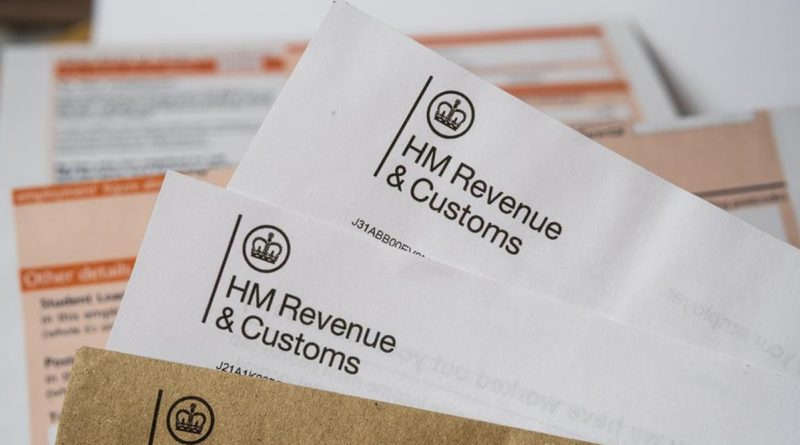HMRC To Scrap The IR35 Reforms In April 2023
You must have anticipated the reduction in NICs and the repeal of the health and social care levy. However, the total reversal of IR35 reforms is one of the more unexpected tax changes in the recent “mini-budget”.
Sometimes known as off-payroll working rules, IR35 reforms will no longer be in effect starting in April 2023.
What does it mean?
These rules held corporations responsible to determine whether workers delivering services through personal service companies (PSCs) would have been employees if they had done so directly. If so, the company needed to pay taxes and NICs as if the individuals were employees.
The new Prime Minister hinted that there might be a review of the IR35 rules in August of this year. However, the Chancellor has abruptly announced the complete repeal of both the 2021 and 2017 changes. This expanded the application of IR35 to the private sector. Therefore, only the first IR35 regulations from 2000 will continue to be in effect.
So, now that the Treasury is repealing the reforms, it means that starting on April 6, 2023, contractors who work for a company through an intermediary will once again be accountable for assessing their employment status. Moreover, they will have to pay the proper amount of tax and NICs.
HMRC’s motive behind this change
Shortly after the Chancellor presented his mini-budget, the Treasury’s Growth Plan Document was published about the reversal of the reform. It announced that repealing the IR35 reforms is one of the first moves the government is going to take. Moreover, the motive behind this change is to simplify the tax code.
- According to the article, the shift will allow companies to use contractors to free up time and money. So, they will be able to use it for other needs.
- Besides, it will lessen the chance that legitimately independent contractors may suffer as a result of off-payroll regulations.
How will these changes affect firms?
The document says that the off-payroll working rules (commonly known as IR35) revisions of 2017 and 2021 will no longer be in effect as of 6 April 2023. Starting on this day, employees in the UK providing their services through an intermediary, like a personal service firm, will once again be in charge of figuring out their employment status and paying the proper amount of tax and NICs.
According to Penny Simmons, legal director at Pinsent Masons, “Firms will undoubtedly appreciate the Chancellor’s decision. They will happily accept the overturned revisions to the IR35 laws that have significantly increased compliance and tax risks for businesses.
Additionally, contractors will once again be accountable for compliance and tax payment. However, it doesn’t necessarily mean the IR35 tale is over. The laws will still exist. If businesses continue to pay contractors off-payroll despite knowing that they should be subject to employee taxation, they run the danger of violating extra tax laws and committing corporate criminal tax offenses.
Moreover, having spent a lot of time and money on compliance, organizations are likely to feel disappointed by the news.
Furthermore, Simmons stated, “it is unclear what stance HMRC will take when dealing with firms who unintentionally broke the law during this interim time.”
What are the different opinions?
“Repealing IR35 reform is a significant triumph for contractors,” said Seb Maley, CEO of Qdos. It’s a company that offers tax insurance for independent workers. These changes have adversely affected hundreds of independent contractors and businesses that use them. So, the fiscal changes made today will probably be remembered as some of the most pro-contracting ever.
However, the government must move quickly. Uncertainty is the last thing contractors and businesses affected by IR35 need. For the public and private sectors, reversing the IR35 reform requires a robust and unambiguous path.
“Both contractors and companies will appreciate these changes who operate in this way,” said Alexander Simpson, a partner at Evelyn Partners, in response to the announcement. Meanwhile, those businesses which make significant use of their services will also be happy about it.
These companies may feel a little frustrated. They’ve spent a lot of time and money in complying with such flimsy rules. Also, they need to reevaluate how this most recent change would affect their future plans for using contractors’ services as opposed to those provided by employees. This can make them a little annoyed.
“A stream of recent tax and employment law court cases have also involved disputes involving work status, including the IR 35 standards. Also, the judiciary needs to consider the concepts of what constitutes employment in contrast to the rendering of services. These measures do not address the complications that have resulted from these problems, and they do not alter this position. Instead of streamlining the procedure, these amendments affect who, practically speaking, needs to decide on employment status for IR35 purposes on a daily basis. In the near future, we hope the government will seize the chance to go above and beyond.




